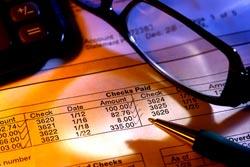The proposed Rental Housing Amendment Bill has significant improvements to assist landlords and tenants.

Tenants have the right to request written proof of interest accrued on the deposit paid.
Penny Cheery, partner in the Real Estate team at Hogan Lovell’s, explains that among the various amendments the noteworthy changes are:
1. Leases are to be put in writing. The onus will be on the landlord to do so.
2. The addition of certain rights and obligations for both tenants and landlords.
Tenants
1. The right to request written receipts that include dates, address or description of the property to which they relate, whether for rental or arrear rental or deposit payment or otherwise, and also stipulate for which period payment is made and received.
2. The right to request written proof of interest accrued on the deposit paid.
3. The right to privacy, which includes the right not to have the property searched or seized without a ruling by a court or tribunal.
4. The right not to have communications infringed.
5. Costs not included in the lease agreement can only be deducted upon proof of such expenditure.
6. Consent to sub-let may not be unreasonably withheld.
1. The deposit received from a tenant is to be invested in an interest bearing account with a financial institution at an interest rate not less than that on a savings account.
2. Various time frames have been set out that must be adhered to by the landlord relating to inspection of a property and/or refunding of deposits.
Cheery says the date for promulgation of the Bill is unknown as it must still be passed by the National Assembly and assented to by the President.
Furthermore, she notes Clause 7, 4A which deals with the rights and obligations of the tenant and 4B which deals with the rights and obligations of the landlord.
Insertion of sections 4A and 4B in Act 50 of 1999
7. The following sections are hereby inserted in the principal Act, after section 4:
Rights and obligations of tenants

The tenant must, on request by the landlord, make himself or herself available to conduct a joint inspection of the dwelling at a time convenient to the landlord and tenant, with a view to ascertaining if there was any damage caused to the dwelling during the tenant’s occupation, as contemplated in section 4B(5).
4A. (1) A tenant has the right to receive a written receipt from the landlord for all payments received by the landlord from the tenant, which receipt must-
(a) Be dated
(b) Clearly indicate the address, including the street number and further description, if necessary, of a dwelling in respect of which payment is made
(c) Indicate whether payment has been made for rental, arrears, deposit or otherwise and
(d) Specify the period for which payment is made.
(2) A tenant may request the landlord during the period of the lease to provide him or her with written proof in respect of interest accrued on the deposit paid.
(3) Subject to section 4B(3), on the expiration of a lease, a tenant has the right to receive payment of the deposit plus any interest accrued to such deposit without any deduction or set-off, within seven days of expiration of the lease.
(4) The tenant must, on request by the landlord, make himself or herself available to conduct a joint inspection of the dwelling at a time convenient to the landlord and tenant, with a view to ascertaining if there was any damage caused to the dwelling during the tenant’s occupation, as contemplated in section 4B(5).
(5) A tenant has the right, during the lease period, to privacy, and should the landlord wish to exercise his or her right of inspection, the inspection must be done in a reasonable manner after reasonable notice to the tenant.
(6) The tenant’s rights as against the landlord include his or her right not to have -
(a) His or her person or dwelling searched
(b) His or her possessions searched and seized, except in terms of a law of general application and having first obtained a ruling by a Tribunal or an order of court or
(c) The privacy of his or her communications infringed.
(7) The rights set out in subsection (6) apply equally to members of the tenant’s household and to visitors of the tenant.
(8) A tenant is liable for rental and other costs agreed upon in the lease upon the due date, but for costs other than those agreed to in the lease, the tenant is only liable upon proof of factual expenditure by the landlord.
(9) A tenant may not sublet a dwelling without the consent of the landlord which consent may not be unreasonably withheld.
Rights and obligations of landlords

A tenant is liable for rental and other costs agreed upon in the lease upon the due date, but for costs other than those agreed to in the lease, the tenant is only liable upon proof of factual expenditure by the landlord.
4B. (1) A landlord may require a tenant, before moving into the dwelling, to pay a deposit which -
(a) May not exceed an amount equivalent to an amount specified in the lease or otherwise agreed upon between the parties
(b) Must be invested by the landlord in an interest-bearing account with a financial institution: Provided that the rate applicable to such account may not be less than the rate applicable to a savings account with that financial institution
(c) Must, subject to subsections (3) or (6), be repaid to the tenant together with any interest accrued to such account on the expiration of the lease, and
(d) Shall, together with any interest accrued to it, not form part of the assets of the insolvent or deceased estate of the landlord in the event of the insolvency or death of the landlord.
(2) Upon request from the tenant during the period of the lease, the landlord must provide him or her with written proof in respect of interest accrued on the deposit referred to in subsection (1): Provided that where the landlord is a registered estate agent as provided for in the Estate Agency Affairs Act, 1976 (Act No. 112 of 1976), the deposit and any interest thereon shall be dealt with in accordance with the provisions of that Act.
(3) On the expiration of the lease, the landlord -
(a) must, where no amounts are due and owing to the landlord in terms of the lease, refund the deposit together with the accrued interest in respect thereof, to the tenant, without any deduction or set-off, within seven days of expiration of the lease or
(b) may apply such deposit and interest towards the payment of all amounts for which the tenant is liable under the said lease, including the reasonable cost of repairing damage to the dwelling during the lease period and the cost of replacing lost keys, if any, and the balance of the deposit and interest, if any, must then be refunded by the landlord to the tenant not later than 14 days of restoration of the dwelling to the landlord and
(c) Must make available to the tenant for inspection the relevant receipts which indicate the costs which the landlord incurred as contemplated in paragraph (b).
(4) The tenant and the landlord must jointly, before the tenant moves into the dwelling, inspect the dwelling to ascertain the existence of any defects or damage, with a view to determining the landlord’s responsibility for rectifying any defects or damage or with a view to registering any such defects or damage.
(5) At the expiration of the lease, the landlord must arrange a joint inspection of the dwelling at a mutually convenient time to take place within a period of three days prior to such expiration, with a view to ascertaining if there was any damage caused to the dwelling during the tenant’s occupation: Provided that -
(a) failure by the landlord to inspect the dwelling in the presence of the tenant as contemplated in this subsection, is deemed to be an acknowledgement by the landlord that the dwelling is in a good and proper state of repair and the landlord will have no further claim against the tenant; or
(b) should the tenant fail to respond to the landlord’s request for an inspection as contemplated in this subsection, the landlord must, within seven days from the expiration of the lease, inspect the
Dwelling in order to assess any damages or loss which occurred during the tenancy.
(6) The landlord, in the circumstances contemplated in -
(a) Subsection (5) (a), must refund the full deposit plus interest to the tenant
(b) Subsection (5) (b), without detracting from any other right or remedy, the landlord -
(in) may deduct from the tenant’s deposit the reasonable cost of repairing damage to the dwelling and the cost of replacing lost keys, if any
(ii) must refund the balance of the deposit and interest, if any, after deduction of the amounts contemplated in subparagraph (in), to the tenant not later than 21 days after expiration of the lease and
(iii) Must make available the relevant receipts which indicate the costs which the landlord incurred, as contemplated in subparagraph (in), to the tenant for inspection.
(7) Should the tenant vacate the dwelling before expiration of the lease, without notice to the landlord, the lease is deemed to have expired on the date that the landlord established that the tenant had vacated the dwelling, in such event the landlord retains all his or her rights arising from the tenant’s breach of the lease.
(8) A landlord may inspect the dwelling during the course of the lease, but in doing so must respect the tenant’s right to privacy during the lease period and may only exercise his or her right of inspection in a reasonable manner after giving reasonable notice to the tenant.
(9) Landlords’ rights against tenants include his or her right to -
(a) Prompt and regular payment of rental or any charges that may be payable in terms of a lease
(b) Recover unpaid rental or any other amount that is due and payable where the tenant fails or refuses to make payment on demand, after obtaining a ruling by the Tribunal or an order of a court of law
(c) Terminate the lease in respect of a dwelling or rental housing property on grounds that do not constitute an unfair practice and are specified in the lease;
(d) On termination of the lease -
(in) have the tenant vacate the dwelling or rental housing property immediately upon expiration of the lease and to receive such dwelling or rental housing property in a good state of repair, except for fair wear and tear; and
(ii) where the tenant fails or refuses to vacate the dwelling, evict the tenant from such dwelling or rental housing property after having obtained an order of court in accordance with the Prevention of Illegal Eviction from and Unlawful Occupation of Land Act, 1998 (Act No. 19 of 1998); and
(e) Claim compensation for damage to the dwelling or rental housing property and damage to any other improvements on the land on which the dwelling is situated, if any, caused by the tenant, a member of the tenant’s household or a visitor of the tenant.
(10) Landlords must ensure that the provisions of sections 5(6), (7) and (8) regarding the lease are complied with.
(11) A landlord must provide a tenant with a dwelling that is in a habitable condition, as well as maintain the existing structure of the dwelling and where possible facilitate the provision of basic services to the dwelling.








